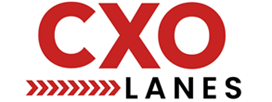“Building Deeptech That Scales: Lessons from the Field with Ekansh Mittal”
- Ekansh Mittal, Founder-CEO, TailorFlow AI
In this exclusive CXO Lanes interview, we speak with Ekansh Mittal, a product and commercial leader whose last five years have been defined by building, scaling, and commercialising deeptech solutions across cleantech, agritech, and AI-powered sensing platforms. From transforming pre-revenue startups into global players, to navigating complex regulatory environments across continents, Ekansh shares his playbook for building traction in sectors where innovation often struggles to scale.
You recently founded TailorFlow AI. What inspired you to start this venture, and what core problems are you aiming to solve?
Ekansh Mittal: TailorFlow AI was born out of repeated frustration. After nearly five years in the trenches of deeptech commercialisation – whether deploying AI-powered sensor platforms in Brazil’s citrus belt or leading cleantech strategy across regulated European markets – I noticed a pattern. Brilliant technical teams were solving critical problems, but their solutions were either trapped in pilot purgatory or never made it out of research labs.
What we were missing wasn’t ambition or capability – it was structured commercial execution. I saw a gap in the industry’s ability to convert research-grade technology into scalable, field-tested products that align with operational realities. TailorFlow is my response to that gap – but it’s really the outcome of lessons learned across multiple roles where I saw firsthand how hard it is to scale innovation in complex sectors.
What’s your approach to building commercial traction in industries traditionally resistant to change?
Ekansh Mittal: I’ve found that resistance often comes from two places – past disappointment and low risk tolerance. In agritech and cleantech especially, the cost of failure is high, so stakeholders are cautious. That means you can’t just show up with a flashy demo; you need to deeply understand workflows, decision-making chains, and on-the-ground constraints.
At Spotta, where I led global commercial strategy, we were introducing a novel pest detection system powered by AI and low-energy IoT sensors. In Brazil, for instance, this meant navigating a landscape dominated by aerial spraying and manual inspections. The key was reframing our solution not as a tech showcase, but as a decision-making tool – one that could reduce pesticide use by 50% and pay for itself through yield protection. We worked directly with growers, scientists, and public sector bodies like Fundecitrus to ground the product in local agronomy and entomology. That’s what unlocked real adoption.
Across roles, I’ve used pilots strategically – not as demos, but as co-creation platforms. Once we show early wins and translate them into cost-saving or compliance value, resistance often turns into advocacy.
You’ve led go-to-market efforts in vastly different regions. How do you tailor your approach to different global markets?
Ekansh Mittal: Every market has its own logic – and ignoring that is the fastest way to stall adoption.
In Latin America, you’re building a trust network first. Commercial discussions only begin once that relationship is established. In Europe, the bar is regulatory proof and process rigour. In the Middle East, large public-sector deals require a long-term lens but can be transformational. North America is different again – fast validation cycles, clear ROI metrics, and a sharp focus on scaling potential.
My approach is to immerse myself early – visit the farms, labs, or industrial sites, talk to the domain experts, get my boots dirty. That first hand exposure shapes how I craft our GTM strategy. I also rely heavily on segmentation – identifying early adopters who are not just technically capable, but motivated to be internal champions. Finally, local partnerships are crucial. You need someone who understands the cultural and institutional nuances and can help you navigate procurement, compliance, and relationships.
What leadership principles have consistently guided you through deeptech ventures?
Ekansh Mittal: Resilience, trust-building, and clarity of purpose.
Deeptech is slow-cooked. You’re often working in highly regulated sectors, with multi-year adoption cycles, and products that require technical validation at every step. Setbacks are inevitable. What keeps momentum going is a culture of ownership – empowered teams who are clear on outcomes, comfortable with ambiguity, and obsessive about the customer.
I’m also big on internal alignment. In my experience at Spotta and ERL, the difference between a great product and a scalable one is often cross-functional trust – between product, sales, engineering, and field ops. Everyone needs to understand not just what we’re building, but why it matters.
Lastly, I believe in outcome-driven autonomy. I set clear commercial or product goals but give teams room to figure out how to get there. That’s where creativity and execution thrive.
